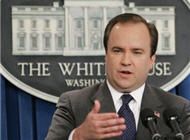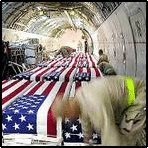
A Clear Executive Philosophy
NY Times: Power of the ExecutiveKR: Presidential Intelligence via
Moderate VotersWashington Monthly: NSA AuthorizationVice-President Cheney, widely acknowledged as a guiding force in the Bush White House, has made well known his views on presidential authority. Apparently Cheney remembers fondly a time when he first came to Washington when the President could conduct secret wars and use the national intelligence services as he wished.
Beginning in late 2001 and continuing, arguably, until the present, Congress has allowed President Bush and his team to stray further from historical precedent and Constitutional provision that makes Congress responsible for committing the nation to war and having an unfettered role in ensuring its effective conduct. Ever since the Gulf of Tonkin Resolution America has been in need of a Congress willing to be the leading branch of government and a federal executive who respected his office enough to let them. In the past four years the Bush team has practiced a
governing style intended to empower the President, incorrectly assuming, among other things, that he could best win a war with Congress serving only as a mechanism to provide funding and legitimacy (and
not meaningful oversight). This approach to governance has progressed so far as to produce
another piece of horrible press, a genuine threat to the protection of civil liberties, and perhaps another legal battle from an administration whose armor now seems to be in as short supply as that of many American soldiers.


